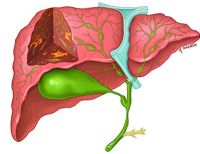Using AI during cancer-screening results in more recommended controls
The patients are recommended controls every three years.

Yuichi Mori Photo: Mathilde Bakke, UiO
A polyp is a small growth of tissue in the colon that can evolve into colorectal cancer. Patients with polyps have a higher risk of evolving cancer in the future.
– Using Artificial intelligence (AI) during colonoscopy, endoscopic examination with a camera, can be useful to detect pre-cancerous polyps, Yuichi Mori, doctor and associate professor from the Clinical Effectiveness Research group at the University of Oslo says.
The AI-tool used during colonoscopy builds upon the same technology as facial recognition on cellphones. By marking the polyps in red or green boxes, the tool assists doctors during colonoscopy, helping them to see polyps they otherwise could have missed.
– The technology is useful when the polyps are small or possibly hard to detect, Mori says.
More patients are recommended control-colonoscopy every three years
A possible flaw with the new technology is that doctors detect more small, non-dangerous polyps using the tool, which then have to be removed. Even if the removal of small polyps does not have any larger side effects, one in a thousand will experience bleeding or a smaller rupture in the colon during removal.
Mori and co-researchers have compared results after colorectal cancer screening, with and without the use of AI. Around 5.800 patients were included in the study.
– Using AI-tools during colonoscopy resulted in a rise of patients with polyps being recommended screening every three years of 20 percent in Europe, says Mori. Usually patients are recommended controls every 10 years.
The research was published in «Impact of artificial intelligence on colonoscopy surveillance after polyp removal: A pooled analysis of randomized trials».
More screening can lead to over-diagnosis
Because the patients have to go through more screenings, using AI during colonoscopy can result in over-diagnosis, strain on the patients, and higher financial costs for the health services. Some patients also find colonoscopy uncomfortable. Taking laxatives and drink two to three liters of clear liquid before the exam can be hard.
– We do not know if more colonoscopies will lead to a lower risk of contracting colorectal cancer over time, or if it will just increase the financial strain on the hospitals. This requires longitudinal clinical effectiveness studies, and studies of the financial costs of using AI during colonoscopies, Mori says.
Lower costs when using artificial intelligence during screening
Mori and his co-researchers have in another new article studied if using AI during colorectal cancer screening actually leads to higher financial costs for the health services. The study shows that using AI-tools during colorectal cancer screening in the US, reduced the costs by 57 dollars per person.
– Using AI during screening can prevent around 7200 cases of colorectal cancer and around 2000 related deaths on the American population level. This will save society costs of 290 million dollars per year in the long run. The study is based on modelling, and we do not yet know if the estimates are correct. To be able to know, we will need large-scale clinical studies, Mori says.
The research was published in «Cost-effectiveness of artificial intelligence for screening colonoscopy: a modelling study».
Mori is now working on the EU-financed research project OperA, a portfolio of large-scale clinical studies of long-term effects of using AI during screening.
– The goal is to change the standard of treatment by establishing reliable clinical evidence, and in the long run improving the outcome for the patients, for instance when detecting colorectal cancer. The OperA-project will find the answer to these important questions, Mori says.
New colorectal cancer screening-program in Norway
Norway has recently introduced a national screening-program for detecting colorectal cancer. 55-year-old men and women will be offered screening through colonoscopy or fecal samples this fall.
– I am happy Norway is now introducing a colorectal cancer screening-program, and I hope it will contribute to reducing cancer, Mori says.
– We do not yet know if AI can contribute to making a difference during screening, but I hope it will be utilized when it can be useful, he finishes.







